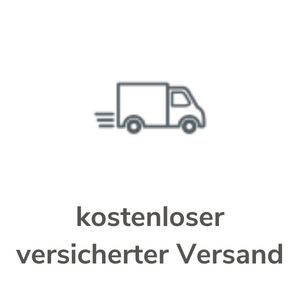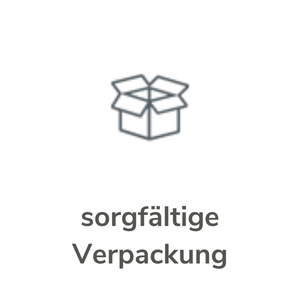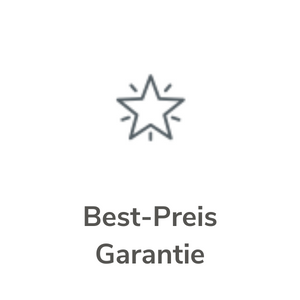Terms and Conditions
Table of contents
-
scope
-
Contractual partner, conclusion of contract
-
Right of withdrawal
-
Prices and payment terms
-
Delivery and shipping conditions
-
Retention of title
-
Liability for defects (warranty)
-
Liability
-
Indemnification in the event of violation of third party rights
-
Redeeming promotional and discount vouchers/codes
-
Applicable Law
-
Online dispute resolution/alternative dispute resolution
1. Scope
The following terms and conditions apply to all orders via the online shop.
2. Contractual partner, conclusion of contract
2.1 The purchase contract is concluded with kiefer-massivholz.de, Cornel Christian Schaffler, Ringofenweg 13, 47809 Krefeld, telephone: 0172-1658870, email: office@kiefer-massivholz.de. By placing the products in the online shop, we make a binding offer to conclude a contract for these items.
2.2 The product descriptions contained in the seller's online shop do not represent binding offers on the part of the seller, but rather serve to make a binding offer by the customer.
2.3 The customer can submit the offer via the online order form integrated into the seller's online shop. After placing the selected goods in the virtual shopping cart and going through the electronic ordering process, the customer submits a legally binding contractual offer with regard to the goods contained in the shopping cart by clicking on the button that completes the ordering process. The customer can also make the offer to the seller by telephone, email or post.
2.4 The seller can accept the customer's offer within five days by sending the customer a written order confirmation or an order confirmation in text form (e-mail), whereby the receipt of the order confirmation by the customer is decisive, or by giving the customer the delivers ordered goods, whereby the receipt of the goods by the customer is decisive, or by asking the customer to pay after placing their order.
If several of the aforementioned alternatives are present, the contract is concluded at the point in time at which one of the aforementioned alternatives occurs first. The period for accepting the offer begins on the day after the customer sends the offer and ends at the end of the fifth day following the sending of the offer. If the seller does not accept the customer's offer within the aforementioned period, this is deemed to be a rejection of the offer with the result that the customer is no longer bound by his declaration of intent.
2.5 When submitting an offer via the seller's online order form, the contract text is saved by the seller and sent to the customer in text form (e.g. email or letter) after sending his order along with these general terms and conditions. In addition, the contract text is archived on the seller's website and can be accessed free of charge by the customer via his password-protected customer account by providing the relevant login details, provided that the customer has created a customer account in the seller's online shop before sending his order.
2.6 Before bindingly submitting the order via the seller's online order form, the customer can identify possible input errors by carefully reading the information displayed on the screen. An effective technical means of better detecting input errors can be the browser's magnification function, which enlarges the display on the screen. As part of the electronic ordering process, the customer can correct his entries using the usual keyboard and mouse functions until he clicks the button that completes the ordering process.
2.7 The only language available for concluding the contract is German.
2.8 Order processing and contact usually take place via email and automated order processing. The customer must ensure that the email address he provided to process the order is correct so that emails sent by the seller can be received at this address. In particular, when using SPAM filters, the customer must ensure that all emails sent by the seller or by third parties commissioned by the seller to process the order can be delivered.
3. Right of withdrawal
3. 1 Consumers generally have a right of withdrawal.
3.2 Further information on the right of withdrawal can be found in the seller's cancellation policy.
4. Prices and payment terms
4 .1 Unless otherwise stated in the seller's product description, the prices stated are total prices and include statutory sales tax. Any additional delivery and shipping costs that may arise will be stated separately in the respective product description. Free shipping applies exclusively to Germany and Austria.
4.2 The payment option(s) will be communicated and displayed to the customer in the seller's online shop.
4.3 If advance payment by bank transfer has been agreed, payment is due immediately after conclusion of the contract, unless the parties have agreed on a later due date.
4.4 When paying using a payment method offered by PayPal, payment processing is carried out via the payment service provider PayPal (Europe) S.à rl et Cie, SCA, 22-24 Boulevard Royal, L-2449 Luxembourg (hereinafter: "PayPal"), subject to PayPal terms of use, which can be viewed at https://www.paypal.com/de/webapps/mpp/ua/useragreement-full or - if the customer does not have a PayPal account - under the terms and conditions for payments without a PayPal account , available at https://www.paypal.com/de/webapps/mpp/ua/privacywax-full.
4.5 If you select the payment method “SOFORT Transfer/KLARNA”, payment is processed via the payment service provider SOFORT GmbH, Theresienhöhe 12, 80339 Munich (hereinafter “SOFORT”). In order to be able to pay the invoice amount via SOFORT transfer, the customer must have an online banking account with a PIN/TAN procedure that has been activated for participation in SOFORT transfer, identify themselves accordingly during the payment process and confirm the payment instruction to SOFORT. The payment transaction will be carried out by SOFORT immediately afterwards and the customer's bank account will be debited. The customer can find further information about the SOFORT transfer payment method on the Internet at https://www.sofort.com/ger-DE/kaeufer/su/so-funktioniert-sofort-ueberweisung/.
4.6 If you select the purchase on account payment method, the purchase price is due after the goods have been invoiced. In this case, the purchase price must be paid without deductions within 5 (five) days of receipt of the invoice, unless otherwise agreed. The seller reserves the right to only offer the purchase on account payment method up to a certain order volume and to reject this payment method if the specified order volume is exceeded. In this case, the seller will inform the customer of a corresponding payment restriction in his payment information in the online shop. The seller also reserves the right to carry out a credit check when selecting the purchase on account payment method and to reject this payment method if the credit check is negative.
4.7 If you select the SEPA direct debit payment method, the invoice amount is due for payment after a SEPA direct debit mandate has been issued, but not before the deadline for advance information has expired. If the direct debit is not honored due to insufficient account funds or due to incorrect bank details being provided, or if the customer objects to the debit even though he is not authorized to do so, the customer must bear the fees resulting from the chargeback from the respective credit institution if he is responsible for this . The seller reserves the right to carry out a credit check when selecting the SEPA direct debit payment method and to reject this payment method if the credit check is negative.
5. Delivery and shipping conditions
5 .1 Goods are delivered by the shipping company chosen by the seller to the delivery address specified by the customer, unless otherwise agreed. When ordering via the seller's online order form, the delivery address specified in the online order form is decisive. Deviating from this, if you select the PayPal payment method, the delivery address provided by the customer with PayPal at the time of payment is decisive.
5.2 If the transport company returns the shipped goods to the seller because delivery to the customer was not possible, the customer will bear the costs for the unsuccessful shipping. This does not apply if the customer effectively exercises his right of withdrawal, if he is not responsible for the circumstance that led to the impossibility of delivery or if he was temporarily prevented from accepting the service offered, unless the seller informs him the service had been announced a reasonable time in advance.
5.3 If the customer acts as an entrepreneur, the risk of accidental loss and accidental deterioration of the goods sold passes to the customer as soon as the seller has delivered the item to the freight forwarder, the freight carrier or the person or institution otherwise designated to carry out the shipment. If the customer acts as a consumer, the risk of accidental loss and accidental deterioration of the goods sold is generally only transferred when the goods are handed over to the customer or a person authorized to receive them. Deviating from this, the risk of accidental loss and accidental deterioration of the goods sold, even for consumers, passes to the customer as soon as the seller has delivered the item to the freight forwarder, the freight carrier or the person or institution otherwise designated to carry out the shipment, if the The customer commissions the freight forwarder, the freight forwarder or the other person or institution designated to carry out the shipment to carry out the shipment and the seller has not previously named this person or institution to the customer.
5.4 The seller reserves the right to withdraw from the contract in the event of incorrect or improper delivery. This only applies in the event that the non-delivery is not the fault of the seller and the seller has concluded a specific cover transaction with the supplier with due care. The seller will make all reasonable efforts to procure the goods. In the event of non-availability or only partial availability of the goods, the customer will be informed immediately and the consideration will be refunded immediately.
5.5 Self-collection is not possible.
5.6 Vouchers/discount codes are provided to the customer as follows: by email
6. Retention of title
6 .1 The seller reserves ownership of the delivered goods until the purchase price owed has been paid in full.
6.2 The seller reserves title to the delivered goods towards entrepreneurs until all claims from an ongoing business relationship have been settled in full.
6.3 If the customer acts as an entrepreneur, he is entitled to resell the reserved goods in the normal course of business. The customer assigns all resulting claims against third parties to the seller in advance in the amount of the respective invoice value (including sales tax). This assignment applies regardless of whether the reserved goods were resold without or after processing. The customer remains authorized to collect the claims even after the assignment. The seller's authority to collect the claims himself remains unaffected. However, the seller will not collect the claims as long as the customer meets his payment obligations to the seller, does not default on payments and no application has been filed to open insolvency proceedings.
7. Liability for defects (warranty)
If the purchased item is defective, the provisions of statutory liability for defects apply. Deviating from this:
7.1 For entrepreneurs
In principle, an insignificant defect does not give rise to any claims for defects; the seller has the choice of the type of supplementary performance; For new goods, the limitation period for defects is one year from the transfer of risk; In the case of used goods, rights and claims due to defects are generally excluded; The statute of limitations does not begin again if a replacement delivery is made within the scope of liability for defects.
7.2 For consumers, the limitation period for claims for defects in used goods is one year from delivery of the goods to the customer, with the limitation of the following paragraph.
7.3 The limitations of liability and shortening of the limitation period regulated above do not apply
· for items that were not used for a building in accordance with their normal use and caused its defects,
· for damages resulting from injury to life, body or health that are based on an intentional or negligent breach of duty by the seller or an intentional or negligent breach of duty by a legal representative or vicarious agent of the seller,
· for other damages that are based on an intentional or grossly negligent breach of duty by the seller or on an intentional or grossly negligent breach of duty by a legal representative or vicarious agent of the user, as well
· in the event that the seller has fraudulently concealed the defect.
7.4 Furthermore, for entrepreneurs, the statutory limitation periods for the right of recourse according to Section 478 of the German Civil Code (BGB) remain unaffected.
7.5 If the customer acts as a merchant within the meaning of § 1 HGB, he is subject to the commercial obligation to investigate and report complaints in accordance with § 377 HGB. If the customer fails to comply with the reporting obligations regulated there, the goods are deemed to have been approved.
7.6 If the customer acts as a consumer, he is asked to complain to the deliverer about delivered goods with obvious transport damage and to inform the seller of this. If the customer does not comply with this, this will have no impact on his legal or contractual claims for defects.
8. Liability
The seller is liable to the customer for all contractual, quasi-contractual and statutory, including tortious claims for damages and reimbursement of expenses as follows:
8.1 The seller is liable without restriction for any legal reason
· in the event of intent or gross negligence,
· in the event of intentional or negligent injury to life, body or health,
· based on a guarantee promise, unless otherwise regulated in this regard,
· due to mandatory liability such as under the Product Liability Act.
8.2 If the seller negligently violates an essential contractual obligation, liability is limited to the foreseeable damage that is typical for the contract, unless unlimited liability exists in accordance with the previous paragraph. Essential contractual obligations are obligations that the contract imposes on the seller according to its content in order to achieve the purpose of the contract, the fulfillment of which enables the proper execution of the contract in the first place and on whose compliance the customer can regularly rely.
8.3 Otherwise, liability on the part of the seller is excluded.
8.4 The above liability regulations also apply with regard to the liability of the seller for his vicarious agents and legal representatives.
9. Indemnification in the event of violation of third party rights
If, according to the content of the contract, in addition to the delivery of the goods, the seller is also responsible for processing the goods according to the customer's specific specifications, the customer must ensure that the content provided to the seller for the purpose of processing does not infringe the rights of third parties (e.g. copyrights or trademark rights). The customer releases the seller from claims by third parties that they may assert against the seller in connection with a violation of their rights through the contractual use of the customer's content. The customer also assumes the appropriate costs of the necessary legal defense including all court and legal fees at the statutory rate. This does not apply if the customer is not responsible for the infringement. In the event of a claim by a third party, the customer is obliged to provide the seller immediately, truthfully and completely with all information required to examine the claims and defend them.
10. Redemption of promotional and discount vouchers/codes
10.1 Promotional and discount vouchers/codes that are issued free of charge by the seller as part of promotions with a specific period of validity and which cannot be purchased by the customer (hereinafter "promotional vouchers") can only be purchased in the seller's online shop and only in the specified one period.
10.2 Promotional vouchers can only be redeemed by consumers.
10.3 Individual products may be excluded from the voucher campaign if a corresponding restriction results from the content of the campaign voucher.
10.4 Promotional vouchers can only be redeemed before completing the ordering process. Subsequent billing is not possible.
10.5 Only one promotional voucher can be redeemed per order.
10.6 The value of the goods must be at least equal to the amount of the promotional voucher. Any remaining balance will not be refunded by the seller.
10.7 If the value of the promotional voucher is not sufficient to cover the order, one of the other payment methods offered by the seller can be chosen to pay the difference.
10.8 The balance of a promotional voucher will neither be paid out in cash nor interest.
10.9 The promotional voucher will not be refunded if the customer returns the goods paid for in whole or in part with the promotional voucher within the scope of his statutory right of withdrawal.
10.10 The promotional voucher is transferable. The seller can make payments with discharging effect to the respective holder who redeems the promotional voucher in the seller's online shop. This does not apply if the seller has knowledge or grossly negligent ignorance of the lack of authorization, incapacity or lack of authorization to represent the respective owner.
11. Applicable Law
The law of the Federal Republic of Germany applies to all legal relationships between the parties, excluding the laws on the international purchase of movable goods. For consumers, this choice of law only applies to the extent that the protection granted is not withdrawn by mandatory provisions of the law of the country in which the consumer has his or her habitual residence.
12. Online dispute resolution | Alternative dispute resolution
12.1 The EU Commission provides a platform for online dispute resolution on the Internet at the following link: http://ec.europa.eu/consumers/odr/
This platform serves as a contact point for the out-of-court settlement of disputes arising from online purchase or service contracts in which a consumer is involved.
12.2 The seller is neither obliged nor willing to take part in a dispute resolution procedure before a consumer arbitration board.










